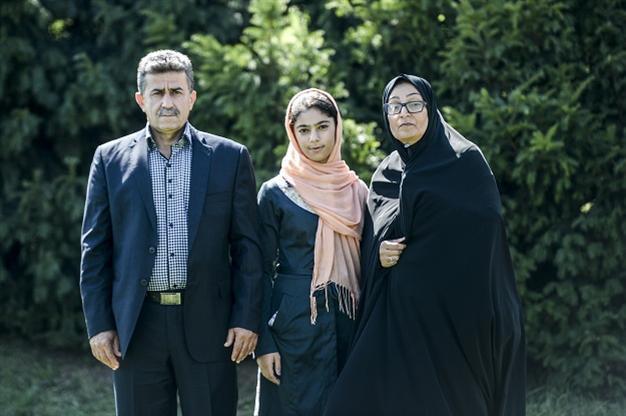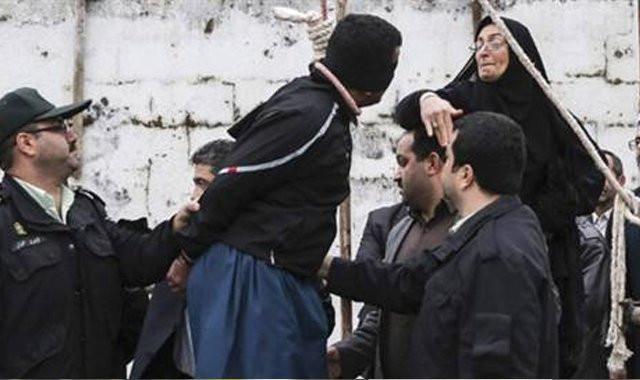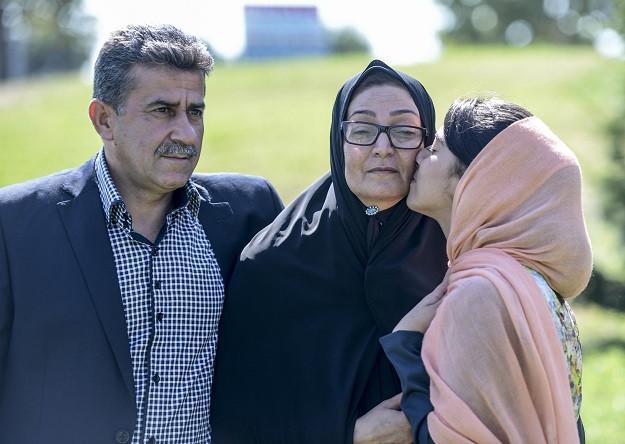Forgiving better than revenge, says Iranian mother who pardoned her son’s killer
Report: Şehriban Oğhan Photos: Selçuk Şamiloğlu

According to the Quran, equal retribution – “qisas” – is permissible for crimes such as murder. In the next sentence, however, it adds: “It is better to forgive.” Taking this advice to heart, one Iranian mother made global headlines last year after forgiving her son’s murderer at the last moment as the convict begged on the gallows.
As Turkey celebrates Peace Day on Sept. 1, the actor at the center of the most dramatic moment in recent memory regarding qisas spoke to daily Hürriyet.
Samareh Ali Nezhad hit the headlines after saving her son’s convicted killer from the hangman’s noose in the small town of Nour in Iran’s Mazandaran province last year. After this act of mercy, Istanbul’s Maltepe Municipality declared Nezhad the “Best Mother of 2014” after the moment was captured on film by a photographer for the Iranian Students News Agency (ISNA).
“In forgiving, there is a unique sensation and taste, which qisas lacks. Forgiving brings abundance. It strengthens the bonds of love and reinforces unity, eliminating hostility. It reduces fights, wars, sadness and tears in the world. Forgiving is such a beautiful thing,” she told Hürriyet in Istanbul.
Nezhad’s feelings on the issue fall in sharp contrast to the views of new Family and Social Policies Minister Ayşe Gürcan on the issue. “Qisas brings about life. It is taking the side of the oppressed and the decision [of retaliation] is taken by the victim’s relatives, not by the state. Qisas is a human right,” Gürcan said in an old tweet that she deleted last week, hours after becoming Turkey’s first ever cabinet member to wear the Islamic headscarf.
Nezhad was scheduled to visit Istanbul in May 2014 to receive her award from Maltepe University, but her health did not permit a long journey at the time. Struggling for a year with physical and psychological illnesses, she finally came to Istanbul to release a dove on this year’s Peace Day.
‘Detaching from life’Although she forgave her son’s killer, Nezhad constantly thinks about her son who was stabbed to death when he was still just a high-school student. “On the day he was killed, I saw everyone running toward one place in the market. I knew that something bad had happened to my son,” she said.
Nezhad’s son, Abdullah, was already dead when he was transferred to hospital after he was stabbed in the heart. “My son was not involved in street fights. The murderer was pursuing somebody he fought and bumped into my son. When my son reacted, he stabbed him,” Nezhad told.
After weeks of “becoming detached from life,” the Iranian woman said she gathered herself to support her 14-year-old daughter Fatemeh Hossein, who accompanied her mother in Istanbul. “When I recognized that she was also a child with a future ahead of her, I gradually bounced back.”
The Iranian court sentenced the murderer, identified as Bilal, to death, in line with Islamic rules on qisas. According to the Iranian media reports at the time, the convict “screamed and cried and tried to break away from the officers who had to drag him to the gallows.”
After Bilal was seated on a chair with a noose around his neck, Samareh Ali Nezhad was asked if she insisted on execution or would forgive him instead.
“When I heard about the death sentence, I thought I didn’t want him die because he was young, too. But I was also extremely sad due to my son’s death. I had mixed feelings,” Nezhad told daily Hürriyet.
The mourning woman initially told the executioner that she wanted him to die. When the crowd booed, she reportedly shouted at them: “Do you have any idea what I have gone through all these years and how my life has become like poison?”
The hard decisionIn reality, she had already decided to forgive the young killer. She told daily Hürriyet that she had reached the hard decision on the day of execution, after listening to her daughter relate a dream. “She had seen my son at the tomb of one of the Prophet Muhammad’s grandsons. My son had wanted me to forgive him,” she said.
Nezhad told the mother of the murderer, who was trying to kiss her feet and begging for a pardon, to “thank only God.” Then she asked for another chair on the gallows, went on top of it, slapped the convict and screamed “I forgive him.”
After removing the noose from the murderer’s neck, both mothers hugged each other. They were both crying, like the convict.
Today Nezhad believes that her son is “in a better place now,” as he told her daughter in a dream. “After the pardon, I started to experience a unique peace within myself. I don’t think anymore that he is the murderer of my son,” she added.
 According to the Quran, equal retribution – “qisas” – is permissible for crimes such as murder. In the next sentence, however, it adds: “It is better to forgive.” Taking this advice to heart, one Iranian mother made global headlines last year after forgiving her son’s murderer at the last moment as the convict begged on the gallows.
According to the Quran, equal retribution – “qisas” – is permissible for crimes such as murder. In the next sentence, however, it adds: “It is better to forgive.” Taking this advice to heart, one Iranian mother made global headlines last year after forgiving her son’s murderer at the last moment as the convict begged on the gallows. 
